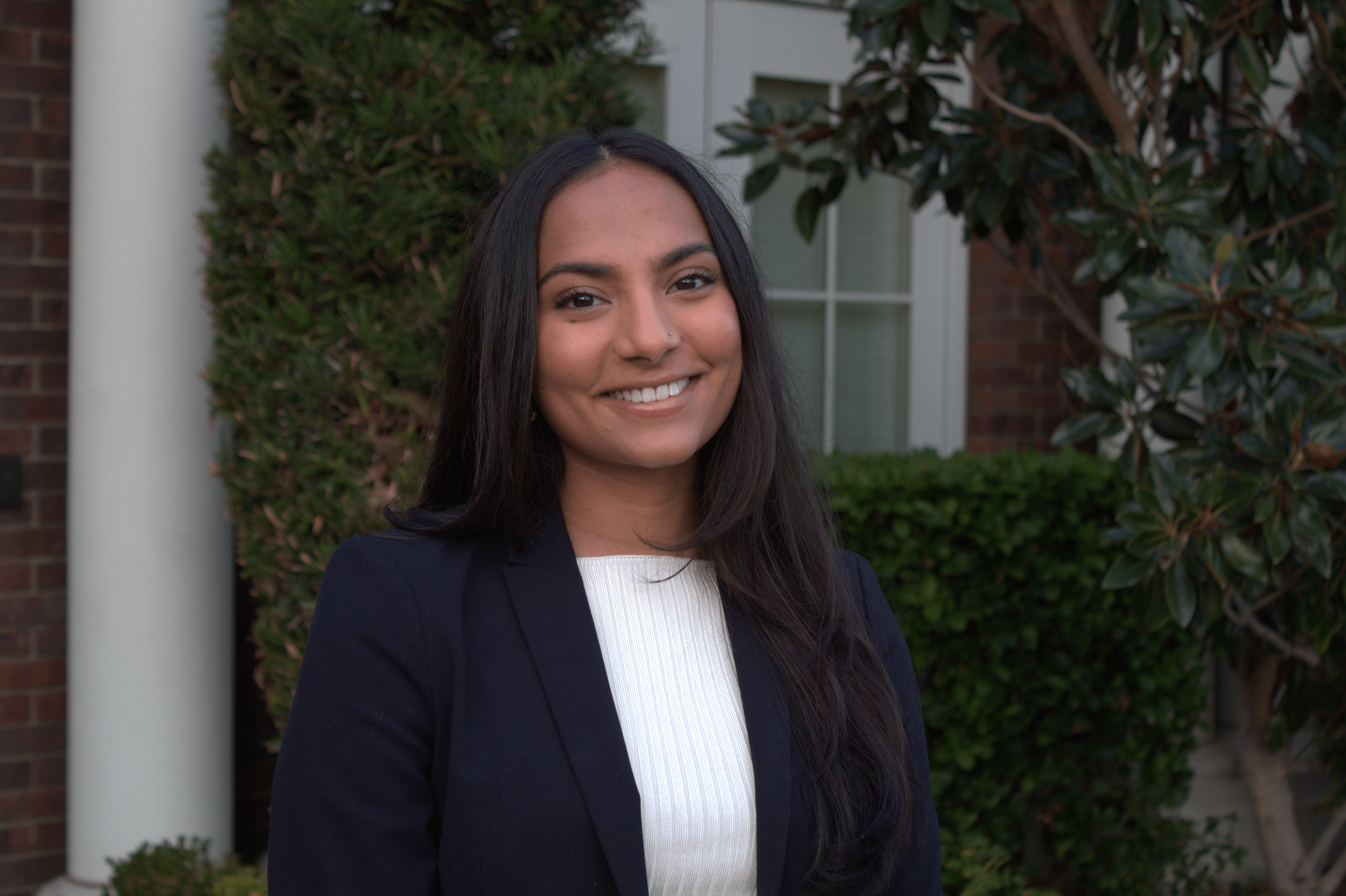By Hurya Ahmed ’25
Growing up in California, I have observed first-hand the grit and innovation embodied by startup founders. They are fueled by rejection, empowered by the word “no,” and appreciate every victory, big or small. My father’s work, advising emerging companies through various rounds of venture and private equity financing for technology and media startups, has shown me that consultants get to experience the same highs and lows and must have the same commitment to an idea’s success. As a student advocate in the Harvard Law Entrepreneurship Project (“HLEP”), I learned that lawyers occupy a similarly integral role in a startup’s development and must remain dedicated not only to the idea, but also to their clients.

That’s why I was so excited to learn that my first project in HLEP was for a Harvard undergraduate student that was developing wearable technology for the visually impaired. This opportunity was a natural next step from my previous work in undergrad as a student consultant for various businesses in the Ithaca community. HLEP, which provides pro bono legal research and analysis to startup founders at Harvard and MIT, allowed me not only to present findings and propose strategy in legal memoranda, but also to conduct research on key legal questions for our clients. I identified the advantages and disadvantages of various corporate structures for the AI technology startup, taking into account the different obligations each structure would impose on the organization as it grew. The client-facing role enhanced communication skills and the ability to tailor advice to specific needs and concerns.
Namely, HLEP allows students the fantastic opportunity to present directly to the client. Under the supervision of full-time attorneys, the work of HLEP teams culminates at the end of the semester with a polished client-facing memo and final presentation. Even as a young associate at a law firm, such experience is hard to come by. The direct exposure forces advocates to drill down the legal knowledge, build rapport with clients, and deliver their message succinctly.
Another aspect I particularly appreciated about HLEP was the active involvement of supervising attorneys. At regular points throughout the semester, work is reviewed by the attorneys and the team is given detailed comments. The iterative feedback feels intentional and allows us to better serve our eager clients. Especially as a 1L, you sometimes forget to filter out legal jargon in a prescriptive memo, so the attorneys provided valuable insight about how to revise language and make it more accessible to a broader audience. I distinctly remember that, in the final client meeting, when I mixed up a key distinction between an S-corp and C-corp, the supervising attorney on the call seamlessly swooped in to correct the error, without missing a beat. The chance to practice providing counsel, while being certain that experienced attorneys can provide support, is an advantage every law student ought to make use of.
More than anything, HLEP gives a taste for working with startup founders as clients. They’re ambitious, mission-driven, and appreciative of legal counsel in getting their passion projects off the ground. Even if one concludes that such work isn’t for them, it’s incredibly helpful to get a sense of the type of clients you want to serve, and how your expertise fits into the larger puzzle of an organization’s success.
Filed in: Clinical Student Voices
Contact Office of Clinical and Pro Bono Programs
Website:
hls.harvard.edu/clinics
Email:
clinical@law.harvard.edu